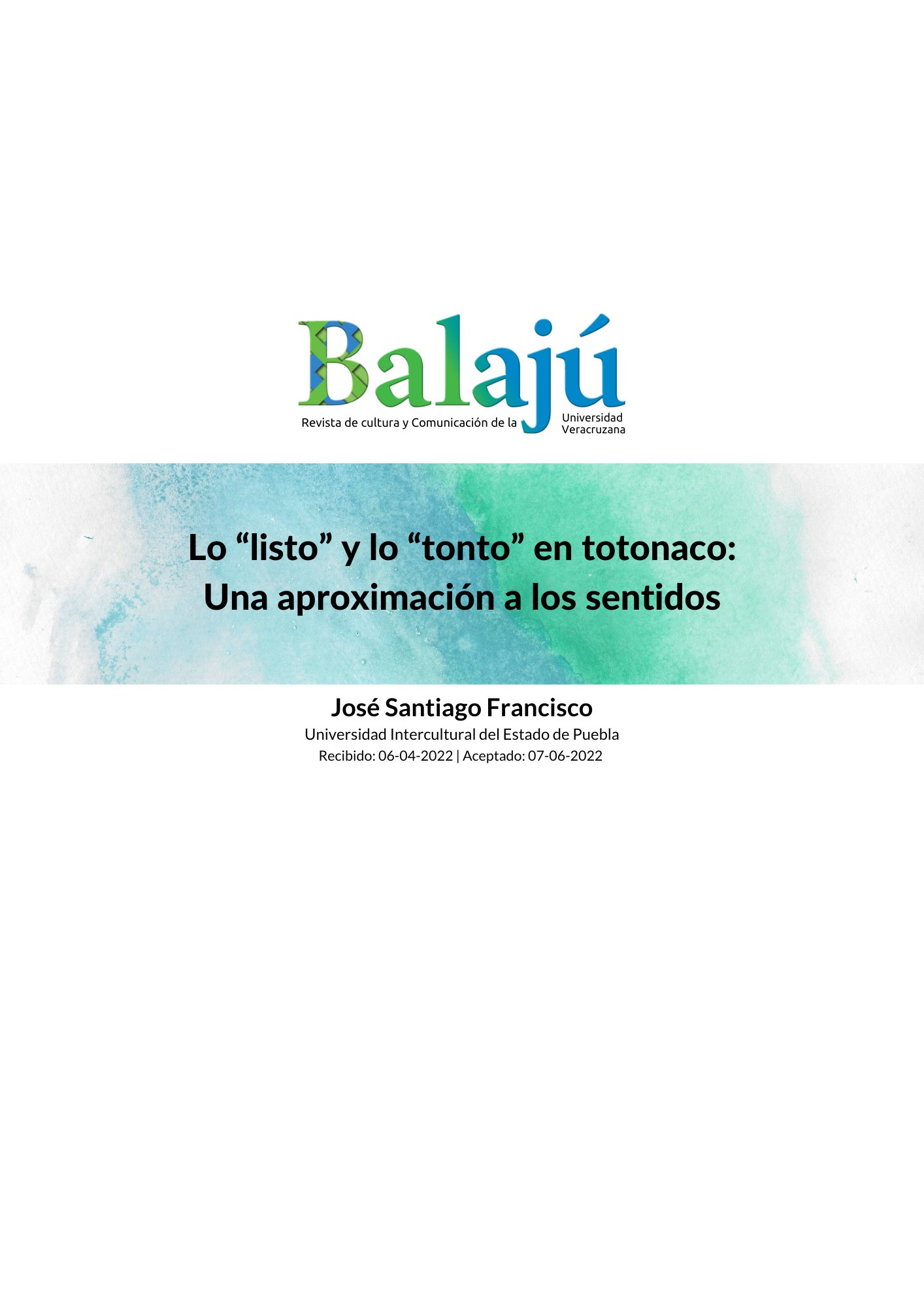Abstract
This article discusses the relationship between language and the senses in Totonac culture. More specifically, it analyzes the way in which Totonac speakers conceive of the senses and states of being, in order to identify expressions associated with intelligence and intellectual limitations. Data gathering took place in the communities of Mecatlán, Coahuitlán, and Filomeno Mata, located in the northern part of the state of Veracruz, Mexico. The methodological approach included interviews with participants from those three sites in order to ensure data triangulation. Results show that, in contrast with Occidental societies, intelligence is associated with animacity and is evaluated mainly through the olfactory sense. These findings contribute to the discussions in sensorial anthropology regarding the role of senses in different cultures.
Keywords: totonac, senses, smell, language, animacity

This work is licensed under a Creative Commons Attribution-NonCommercial 4.0 International License.


